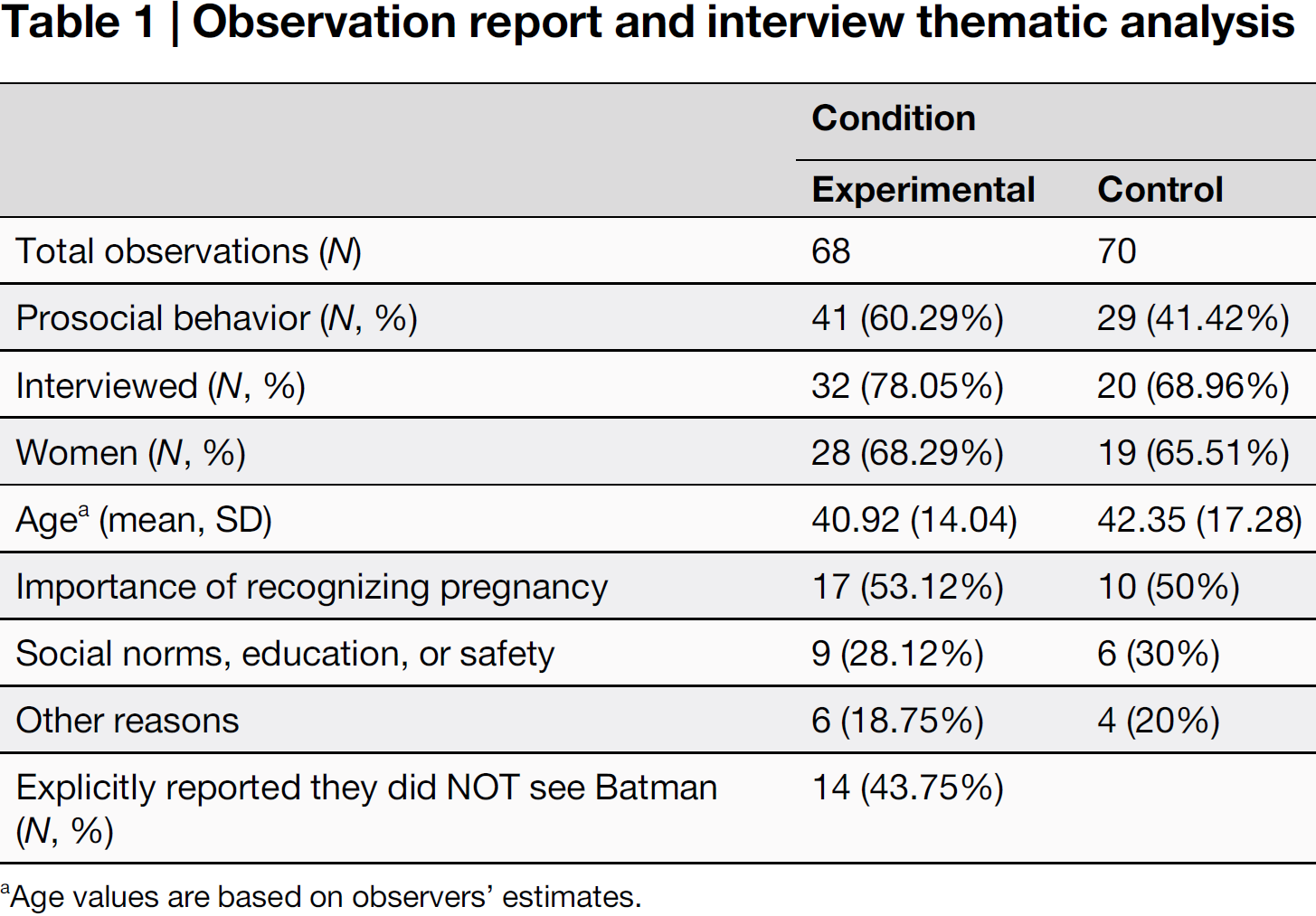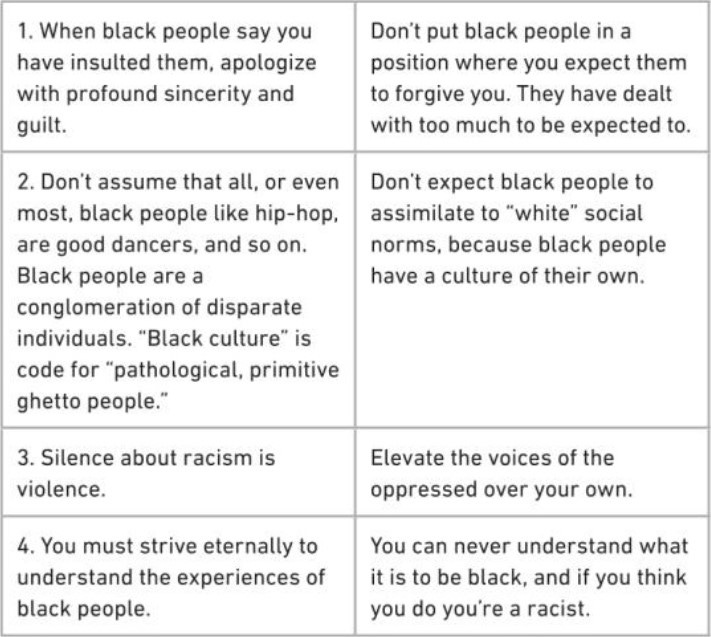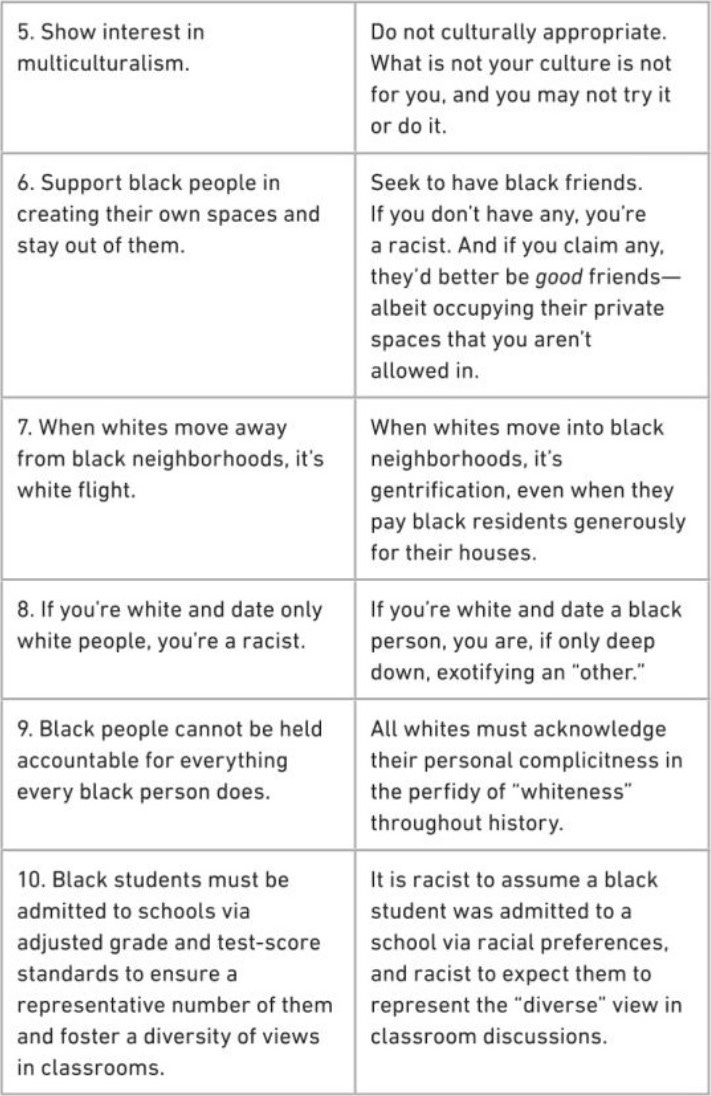Domesticated Raccoons, Spider Scarecrows, and Mammals That Breathe Through Their Butts
The Nature-Nurture-Nietzsche Linkfest for November 2025

In Case You Missed It…
Welcome to the November 2025 edition of the N3 Newsletter Linkfest: a roundup of links to studies, statistics, and oddball findings that caught my eye over the last month. On the menu today:
Five surprising findings on animal behavior
The newly discovered “Batman effect”
How wokeness finds fault no matter what you do
A provocative evolutionary explanation for PMS
New evidence that the gender pay gap is mostly about motherhood, not discrimination
A major new study on gender-affirming hormones and cardiovascular health
The latest on whether fluoride in the drinking water affects intelligence
You can find the complete library of Linkfests here.
Women Want to Be Prettier Than Their Partner; Men Want to Be Richer and Funnier
I was recently interviewed by Sara Phillips for an article in New Scientist about research suggesting that we’ve been underestimating sex differences in mate preferences. Check out the excerpt below. [Link.]
A survey of more than 1200 heterosexual US adults found that when forced to choose between having a trait themselves or assigning it to their partner, men and women starkly differed in their choices…
In general, women tended to want to be attractive and intelligent themselves and to date men who are wealthier, funnier and more ambitious than they are, while men mostly wanted to be wealthy and to date women who are better looking than they are…
Steve Stewart-Williams at the University of Nottingham in Semenyih, Malaysia, says that, in general, the results aren’t surprising, but that forcing people to choose may have made their true feelings more apparent. Researchers may “have been underestimating the size of sex differences in mate preferences because of the way we’ve been measuring them”, he says.
Five Surprising Findings on Animal Behavior
A new study reports that roughly one in three dogs shows signs of “toy addiction.” The tendency is more common in certain breeds - terriers and shepherds, for instance - suggesting a genetic component. Interesting findings, but I have to say: The notion of toy addiction in dogs seems to me a clear-cut case of concept creep… [Link.]
According to recent research, domestic cats meow more when greeting male caregivers than female caregivers, presumably due to systemic sexism. [Link.]
City-dwelling raccoons may be evolving to look more like pets. Specifically, they seem to be evolving cuter, shorter snouts - a telltale sign of domestication syndrome. If the result holds up, we may be witnessing the early stages of the process that gave us domesticated dogs and cats. [Link.]
Two species of Cyclosa spiders have been spotted weaving giant silk decoys of themselves - sometimes up to ten times their own size - to scare off spider-munching predators. They even shake the decoys to make them move, effectively creating spider scarecrows at the center of their webs. Natural selection. Is. Amazing. [Link.]
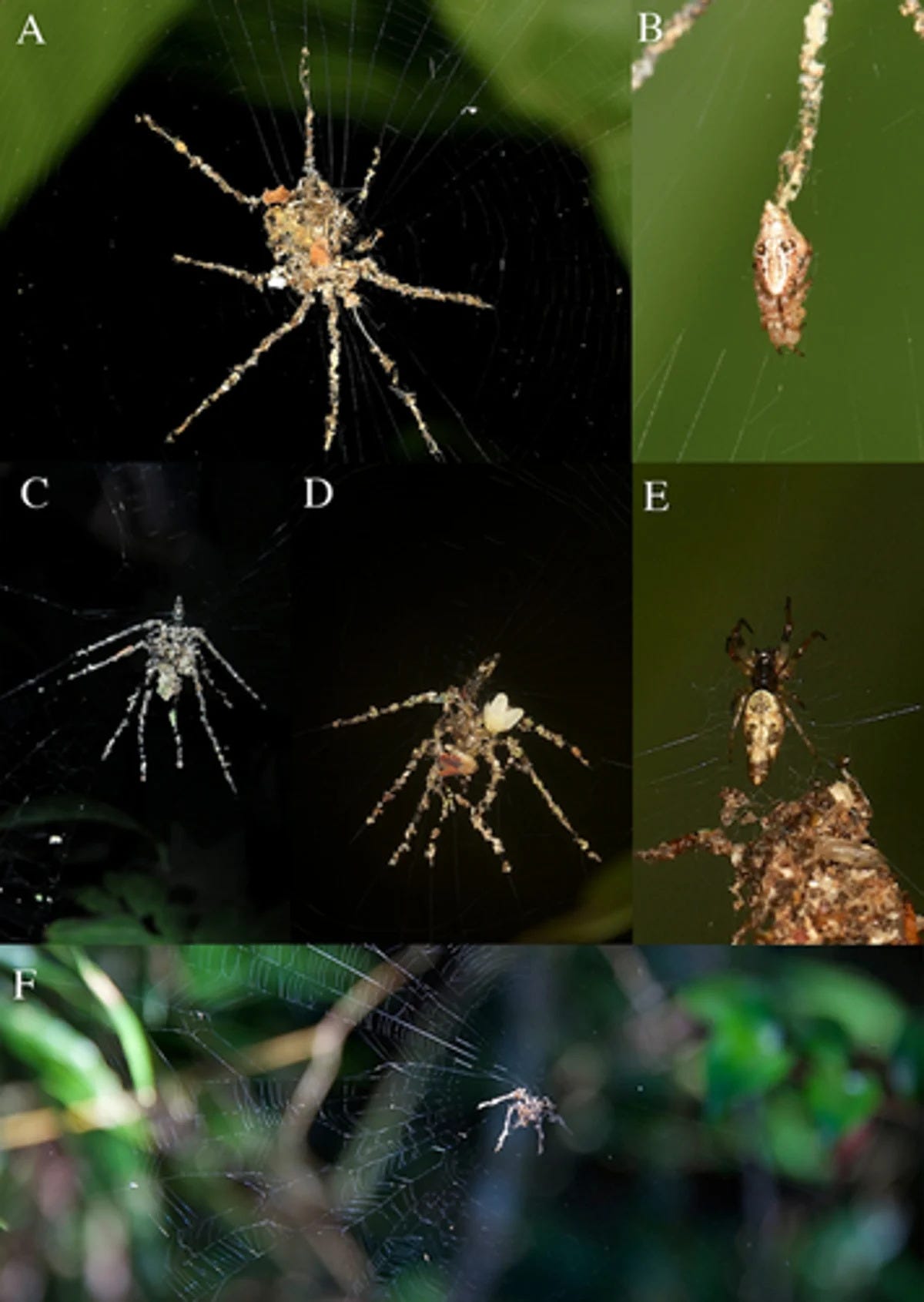
(A) The “spider-like decoy” stabilimentum of the first individual Cyclosa sp. observed in the Philippines. (B) The Cyclosa sp. observed resting within the stabilimentum illustrated in A. (C) The first Cyclosa individual found exhibiting a spider-like stabilimentum in Madre de Dios, Peru. (D) The stabilimentum and spider of the Peruvian Cyclosa sp. showing the spider’s position above the stabilimentum. (E) The Peruvian Cyclosa species that builds stabilimentum. (F) A similar stabilimentum, built by an unknown spider taxon, found and photographed in the Torotorofotsy-Ihofa forest, Madagascar by H. Cordey. Source: Olah et al. (2025). In 2024, a group of scientists won an Ig Nobel Prize for their discovery that many mammals can breathe through their butts. Now, the team behind this crucial breakthrough has taken the next logical step: They’ve completed the first human trial of enteral ventilation - a technique in which oxygen-rich fluid is pumped into people’s backsides to oxygenate their bloodstream. If it pans out, the procedure could one day help patients with severe respiratory failure by giving their damaged lungs a chance to rest. [Link.]
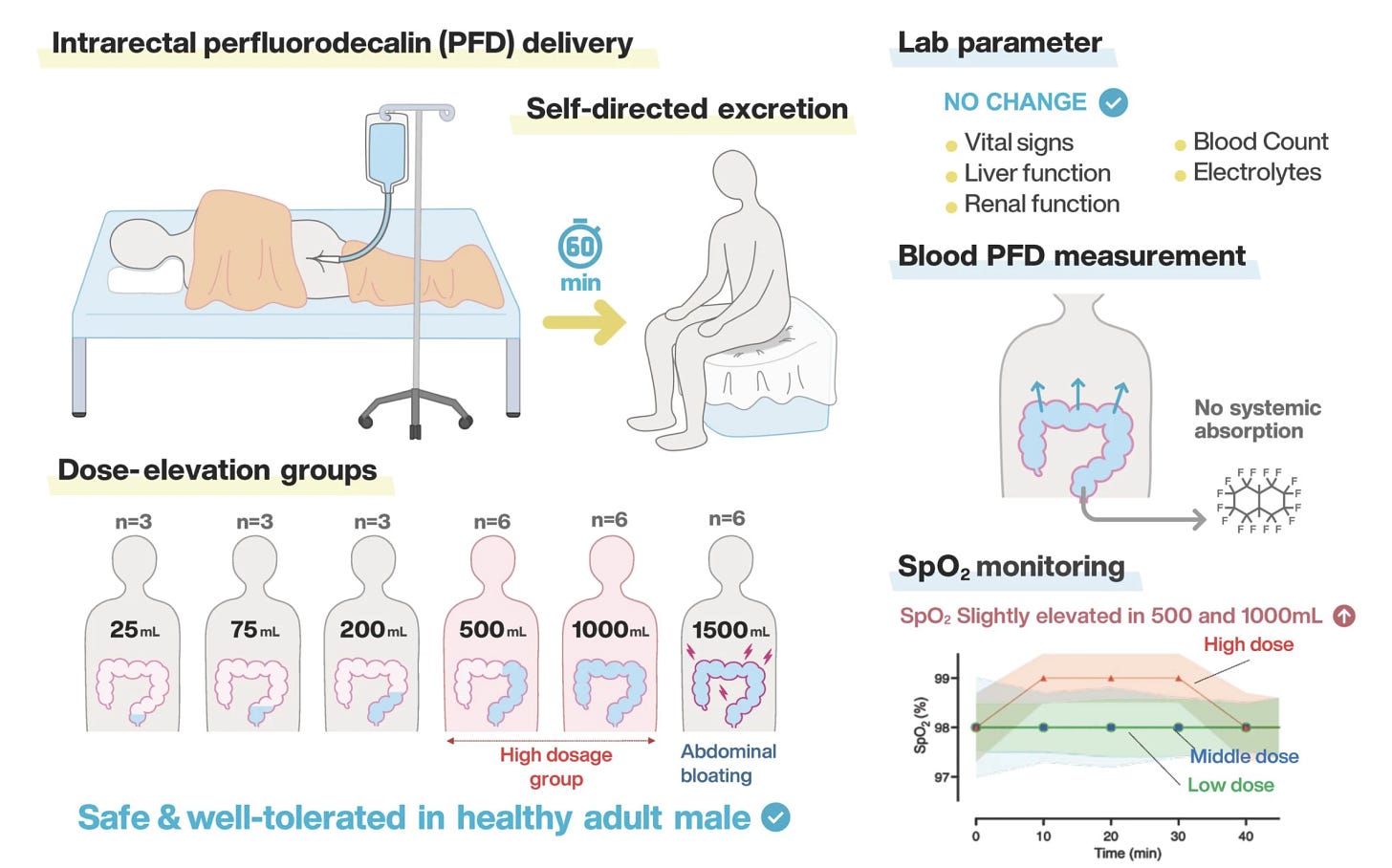
Source: Fujii et al. (2025).
The Batman Effect
In a quirky field experiment on the Milan metro, a female experimenter - looking convincingly pregnant - boarded the train and waited to see who’d give up their seat. In half the trials, another experimenter entered from a different door dressed as Batman. Commuters were nearly twice as likely to offer the woman their seat when the Dark Knight was in the vicinity (67% vs. 38%). [Link.]
Damned If You Do, Damned If You Don’t
John McWhorter’s bestselling book Woke Racism includes a rather striking table of the contradictions in third-wave antiracism. The central message: Whatever you do, you can be accused of racial bias. Move into a Black neighborhood? Gentrification. Move out? White flight. Date only White people? Racist. Date a Black person? Exoticizing. This isn’t to deny, of course, that racism exists, but only to suggest that some activists read racism into almost anything. In the short-term, this may give them political leverage; in the longer-term, it could create skepticism about the cause and diminish the impact of racism accusations - a classic boy-who-cried-wolf scenario. [Link. See also this viral Twitter/X thread by “Titania McGrath.”]
Sex Differences in Believing Bullshit
A significant minority of men and women believe bullshit - but each sex is drawn to different bullshit subtypes. Most notably, women are overrepresented in ghost-related bullshit, whereas men are overrepresented in alien bullshit. [Link.]
Just to be clear, my best guess is that life has evolved elsewhere in the universe, and thus that aliens probably exist. However, I don’t think there’s any good evidence they’ve made it to Earth. As for ghosts, I’ll let the comedian Jimmy Carr weigh in.


